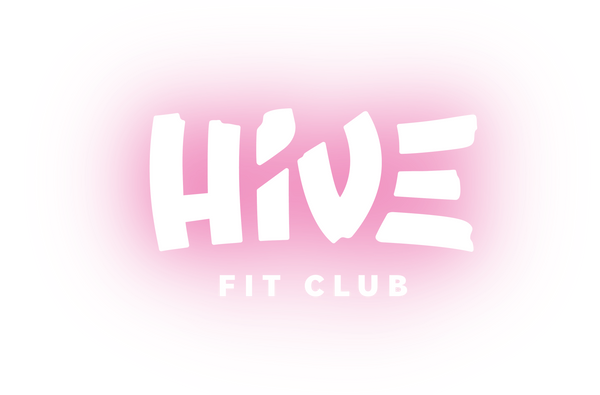
The Truth About Sugar and Your Workout: What Every Athlete Needs to Know
Share
Sugar is everywhere. From morning coffee sweeteners to post-workout shakes, it sneaks into many of the foods we eat daily. For those serious about fitness, it's increasingly important to understand how sugar influences performance and health. As awareness grows about how nutrition influences performance, recovery, and overall wellness, sugar has moved into the spotlight—both as a potential ally and a serious obstacle.
In this blog, we’ll explore sugar’s dual role in fitness, break down its effects on your performance, recovery, and body composition, and offer strategies to manage sugar intelligently to support your wellness goals.
Is Sugar Good or Bad for Fitness? When it Helps vs. Hurts
Sugar isn’t all bad. When timed right, it can actually enhance athletic performance. Here's how:
- Quick Energy Boost: During high-intensity workouts or competitions, simple sugars provide fast-digesting fuel to power your muscles and brain.
- Natural vs. Added Sugars: Natural sugars from fruits and dairy come with vitamins, fiber, and nutrients. Added sugars, on the other hand—like those in sodas, processed snacks, and some protein bars—offer empty calories with no nutritional value.
- Smart Timing: Consuming sugar pre- or intra-workout can support endurance and strength, while post-workout sugars can help replenish glycogen stores. But outside these windows, they can hinder your progress.
The Hidden Dangers of Too Much Sugar on Muscle Recovery and Fat Loss
While sugar can be useful in specific contexts, excessive intake can be counterproductive, especially for athletes and fitness lovers.
- Energy Crashes: Sugar spikes lead to rapid energy boosts followed by crashes that leave you feeling tired and unfocused.
- Increased Fat Storage: Any sugar the body doesn’t use immediately is stored as fat, making it harder to hit body composition goals.
- Impaired Muscle Recovery: High sugar consumption can increase inflammation, delaying recovery and hindering muscle growth. For better recovery options, consider these 7 Best Recovery Stretches for Sore Muscles.
- Insulin Resistance: Long-term high sugar intake can lead to insulin resistance, negatively affecting how your body absorbs nutrients and builds muscle.
- Dehydration: Sugary drinks can interfere with hydration. Instead, explore alternatives like IV Therapy that boost hydration and recovery.
- Cravings and Overeating: Sugar stimulates dopamine, reinforcing cravings that make it harder to stick to a balanced nutrition plan.
How Excess Sugar Sabotages Long-Term Health and Fitness Goals
A sugar-heavy diet doesn’t just affect today’s workout—it can impact your health and fitness long-term.
- Heart Health: High sugar intake contributes to high blood pressure and poor circulation—two major concerns for active lifestyles.
- Chronic Inflammation: Ongoing inflammation increases injury risk and delays healing. Explore therapies like PEMF Therapy to counteract inflammation naturally.
- Liver Issues: Excess fructose is metabolized in the liver, where it can lead to non-alcoholic fatty liver disease.
- Obesity and Diabetes: These conditions directly reduce physical capability and undermine years of hard work in the gym.
Common Foods With Hidden Sugars Athletes Should Avoid
Sugar often hides in foods marketed as healthy. Watch out for:
- Unexpected Culprits: Ketchup, salad dressings, granola, and even some protein shakes can contain surprising amounts of sugar.
- Label Literacy: Learn to spot sugar aliases like corn syrup, maltose, fructose, and dextrose. The fewer unfamiliar ingredients, the better.
Sugar Moderation Strategies for Athletes
You don’t need to eliminate sugar entirely, but managing it wisely is key.
- Sugar Reset: Try a short-term sugar detox to reduce cravings and reset your taste buds.
- Smart Carbs: Choose complex carbohydrates like oats, quinoa, and sweet potatoes for sustained energy.
- Balanced Meals: Focus on whole foods with protein, fiber, and healthy fats to maintain energy without sugar spikes.
- Mindful Indulgence: If you’re going to indulge, time it around your workout so your body can use the sugar more efficiently.
Master Your Sugar Intake to Boost Fitness, Recovery, and Health
Sugar isn’t always the enemy, but unmanaged sugar habits can be. The key is balance. With thoughtful planning and awareness, sugar can play a helpful role in your fitness routine rather than hinder it.
If you’re ready to evaluate your current nutrition habits and explore science-backed ways to optimize your health, check out our services like HoneyGlow Wellness, Group Classes, or meet with a Personal Trainer to create a custom plan that works for you.
Take control of your nutrition and transform your fitness journey. Become a Member today at Hive Fit Club.






